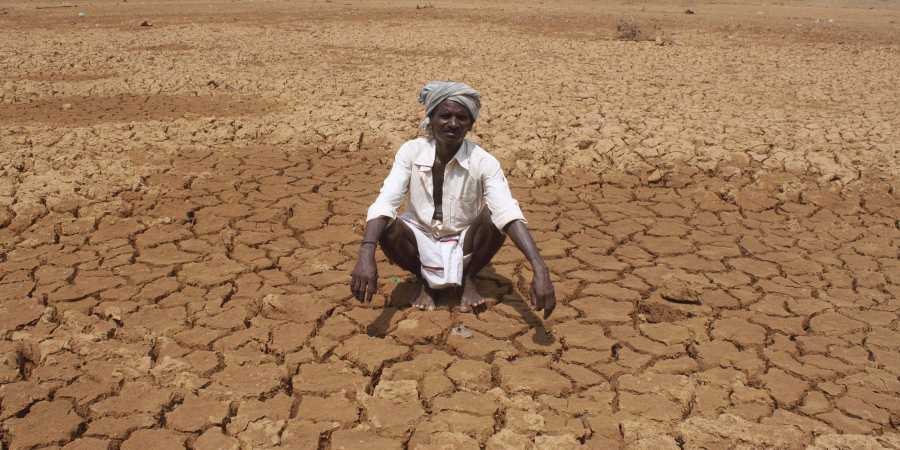State-wise details of agriculture credit disbursement as reported by the National Bank for Agriculture and Rural Development (NABARD) during the year 2018-19 (provisional) is given in Annexure.
There is no proposal under consideration of the Union Government to waive off loans of farmers. However, to reduce the debt burden of farmers, the following major initiatives have been taken:
· With a view to ensure availability of agriculture credit at a reduced interest rate of 7% p.a. to the farmers, the Government of India in the Department of Agriculture Cooperation and Farmers’ Welfare (DAC&FW) implements an interest subvention scheme for short term crop loans up to Rs. 3.00 lakh. The scheme provides interest subvention of 2% per annum to Banks on use of their own resources. Besides, additional 3% incentive is given to the farmers for prompt repayment of the loan, thereby reducing the effective rate of interest to 4%.
· Under the aforesaid interest subvention scheme, to provide relief to farmers affected by natural calamities, the interest subvention (2%) on crop loan continues to be available to banks for the first year on the restructured amount. Such restructured loans may, however, attract normal rate of interest from the second year onwards as per the policy laid down by the Reserve Bank of India (RBI).
· In order to provide relief to the farmers affected due to severe natural calamities, the Government in DAC&FW has decided that interest subvention of 2% per annum will be made available to banks for first three years/entire period (subject to a maximum of five years) on the restructured loan amount, and in all such cases the benefit of prompt repayment incentive at 3% per annum shall also be provided to the affected farmers. The grant of such benefits in cases of severe natural calamities shall, however, be decided by a High Level Committee (HLC) based on the recommendation of Inter-Ministerial Central Team (IMCT) and Sub Committee of National Executive Committee (SC-NEC).
· Reserve Bank of India (RBI) has issued directions for Relief Measures to be provided by respective lending institutions in areas affected by natural calamities which, inter alia, include restructuring/rescheduling of existing crop loans and term loans, extending fresh loans, relaxed security and margin norms, moratorium, etc. These directions have been so designed that the moment calamity is declared by the concerned District Authorities, they are automatically set in motion without any intervention, thus saving precious time. The benchmark for initiating relief measures by banks has been reduced from 50% to 33% crop loss in line with the National Disaster Management Framework. Banks have been advised not to insist for additional collateral security for restructured loans.
· Loan to distressed farmers indebted to non-institutional lenders is an eligible category of farm credit under the Priority Sector Lending (PSL) as per directions issued by RBI.
· To enhance coverage of small and marginal farmers in the formal credit system, RBI has decided to raise the limit for collateral-free agriculture loans from Rs. 1 lakh to Rs. 1.6 lakh.
· The requirement of ‘no due’ certificate has also been dispensed with for small loans upto Rs.50,000/- to small and marginal farmers, share croppers and the like and, instead, only a self-declaration from the borrower is required.
· To bring small, marginal, tenant farmers, oral lessees, etc. into the fold of institutional credit, Joint Liability Groups (JLGs) have been promoted by banks.
· Pradhan Mantri KIsan SAmman Nidhi (PM-KISAN) scheme has been implemented to provide an assured income support to all farmers, irrespective of the size of their land holdings subject to the exclusion factor. Under this scheme direct income support @ of Rs. 6,000 per year will be transferred directly into the bank accounts of beneficiary farmers, in three equal installments of Rs.2,000 each.
· Pradhan Mantri Fasal Bima Yojana (PMFBY) provides a comprehensive insurance cover against failure of insured crops due to non-preventable natural risks, thus providing financial support to farmers suffering crop loss/ damage arising out of unforeseen events; stabilizing the income of farmers to ensure their continuance in farming; and encouraging them to adopt innovative and modern agricultural practices.
This was stated by Shri Anurag Singh Thakur, Minister of State for Finance & Corporate Affairs in a written reply to a question in Lok Sabha today.
";


